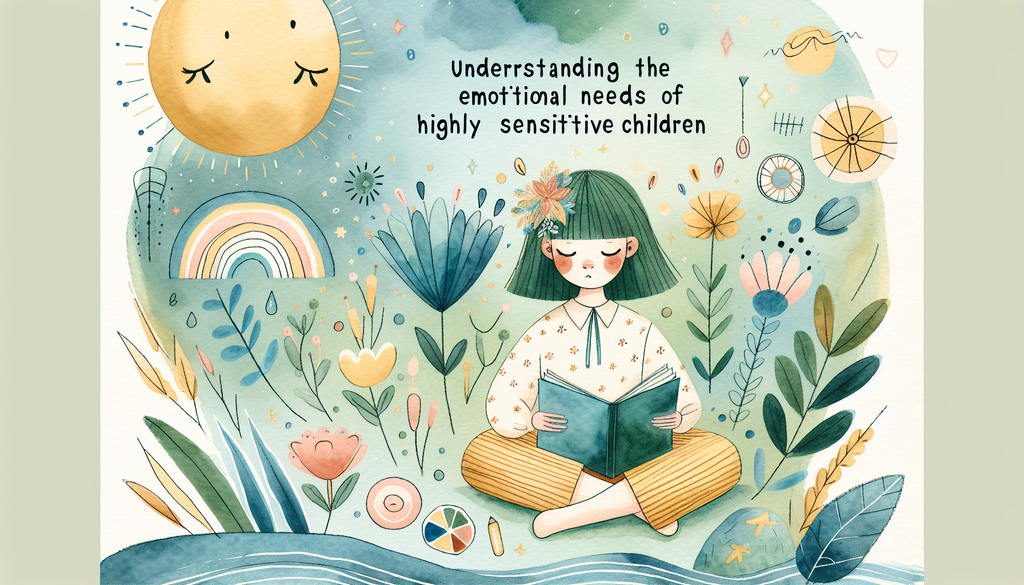Understanding the Emotional Needs of Highly Sensitive Children

Highly sensitive children bring a special gift to our world: they add depth to our understanding of feelings and provide a unique perspective on what it means to be human. Their sensitivities can illuminate our lives in so many ways, but these very same traits can also present unique challenges. Understanding these children and their emotional needs is essential in guiding them to harness their sensitivities positively.
Emotions of a Highly Sensitive Child
Highly sensitive children experience emotions more deeply and intensely compared to others. Their feelings can be overwhelming and can manifest in various ways, such as crying excessively, showing high levels of empathy, or expressing deep philosophical thoughts. In our previous post Addressing Overexcitabilities in Gifted Children, we’ve navigated the intricacy of intense feelings associated with children labeled as “gifted.”
School Challenges for Highly Sensitive Children
In the school environment, highly sensitive children may struggle with harsh criticism, group activities, or loud environments. Their unique emotional needs may set them apart from their peers, leading to feelings of isolation or being misunderstood.
Understanding & Supporting Your Highly Sensitive Child
Understanding a highly sensitive child is the first step towards meeting their emotional needs. Empathy and patience will be your best allies in this journey. We delve deeper into this topic in our previous post, Supporting Your Highly Sensitive Child.
Strategies for Home & School Settings
Whether at home or in school, there are strategies that can support a highly sensitive child and create an environment conducive to their unique needs:
- Validate their feelings: High sensitivity is a valid trait. Don’t dismiss their feelings. Instead, recognize, acknowledge, and validate their emotions.
- Encourage expression: Create safe spaces for them to express their feelings, perhaps through art, music or writing. Our post on Art Therapy: A Canvas for Special Needs Expression explores this idea further.
- Promote mindfulness: Techniques like mindfulness and meditation can help them deal with overwhelming feelings. Our previous piece on Gifted and Stressed: Mindfulness Practices for High Achievers provides excellent mindfulness practices you can try.
- Encourage peer acceptance: Educate their peers about high sensitivity to promote a more inclusive environment.
- Maintain open communication: Encourage open dialogue between parents, teachers, and the child.
Specialized Assistance
Depending on the degree of sensitivity, working with special educators, child psychologists, or therapists may prove beneficial. For example, you might consider school or private counseling, or even Cognitive Behavioral Therapy, which we discuss in depth in our post, Cognitive Behavioral Therapy for Anxious Gifted Children.
Conclusion
Each child’s journey with high sensitivity will be unique. With understanding, patience, and appropriate strategies, highly sensitive children can be guided to express their emotions healthily and positively. Don’t forget, the goal isn’t to change these children but to support the wonderful qualities inherent in them: empathy, creativity, and the deep capacity for understanding the world around them.